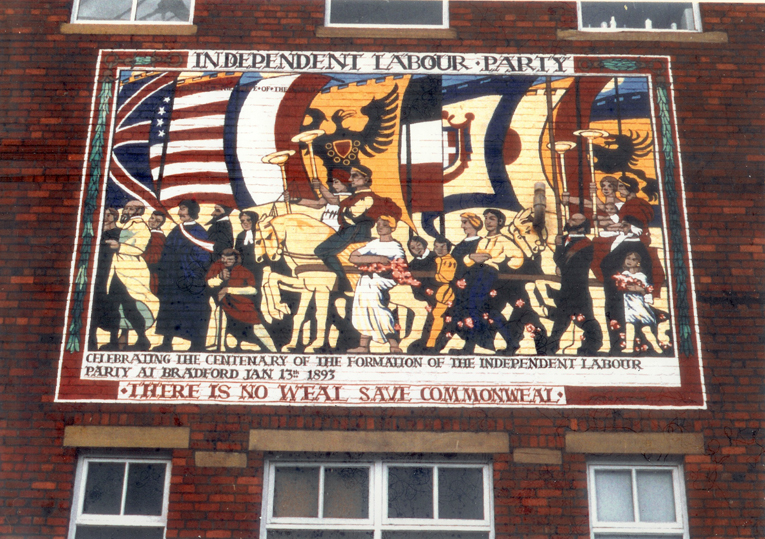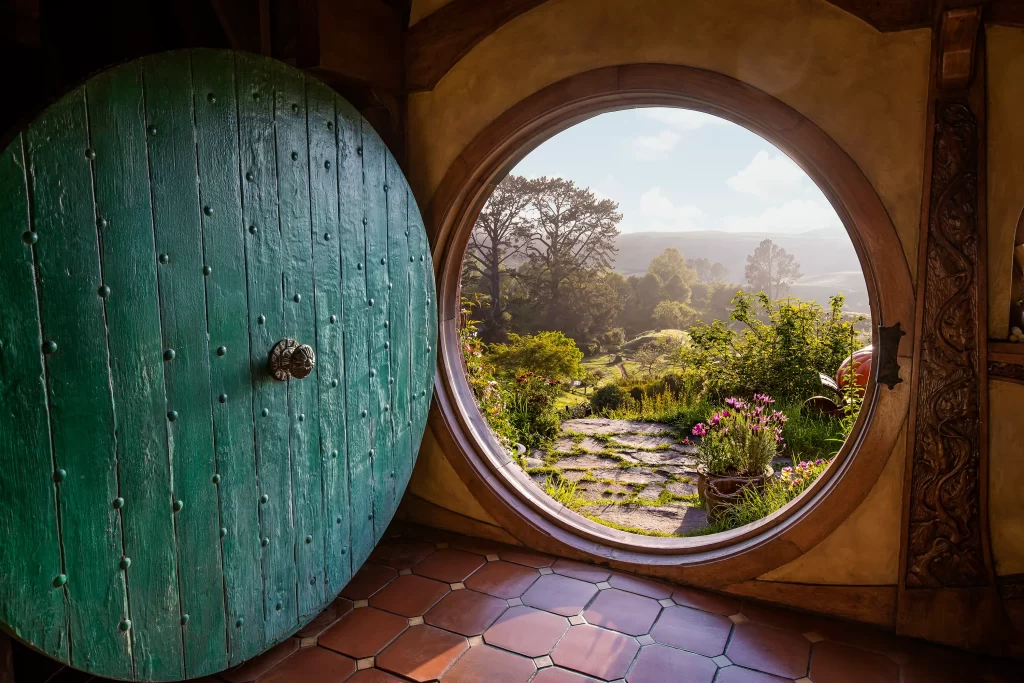I have become fascinated with a particular phrase that I hear quite a lot: “But we want to make it Bradford.” What does it mean to be ‘Bradford’? My colleague the Dean praises certain things by the adulation of, “We made that Bradford.” I was in a discussion about the creation of an Artists’ Charter to be proposed for the City of Bradford. As part of the consultation we were asked “how we would make this distinctly Bradford?” This singular cultural concept rooted in a local place is interesting to me in a city which is so global in its population.
Before moving to Bradford last year I began to be interested in a similar philosophical question but on a slightly larger level: “What does it mean to be British?” or, at times, “What does it mean to be English?” Do such conceptual categories exist? The term is used enough that we all seem to accept it and to bestow upon it meaning but is that meaning shared? I have witnessed it being used in contradictory ways and yet I still feel a truth lying at the heart of the sentiment; or, maybe, I long for it to mean something even if it does not.
A friend of mine often says that stereotypes, however insulting, are rooted in some truth. The issue is the removal of nuance and dimension from the object we’re stereotyping so they become caricatures without dignity and a deeply mysterious depth. Indeed, to stereotype is the start of the de-humanising of a person, but my friend is right in that these broad and basic categories have an element of truth: they’re just isolated from the plethora of other factors that make up a person or nation. Take Germany for example. There is a broad truth that there is, within the German culture, a valuing of efficiency and order. This is also seen in the wider category of germanic cultures outside of the current national identity of ‘Germany’. The question should be asked, therefore, are the people of germanic countries culturally conditioned or is the culture shaped by the people?
As we at Bradford Cathedral go through a vision and value setting process looking ahead to further strategic development, I am aware of the balance of listening and receiving a culture as well as shaping and making a culture. As part of our listening and consultation process we studied our history and probed it for cultural markers and definition. There are certainly some cultural artifices that repeat over the centuries of the community that worshipped on the site of the Cathedral; we have articulated this as ‘a story of change and ambition, of hard work and dedication, of failures and yet trust and hope in a God who changes lives and transforms communities.’
We hear the story of the civil war and how the people of Bradford were outnumbered by Royalists. They were besieged many times and cannons opened fire on the parish church (the future Cathedral that stands today). At the final battle, the Earl of Newcastle ordered the whole of Bradford to be killed. This order was rescinded after he had a visitation from a girl in white who famously said, “Pity poor Bradford.” Whether the people of Bradford like that story or not it is part of the history and it tells us several things that can still be felt and experienced in Bradford today.
Firstly there is a history of being small, outnumbered underdogs who punch above their weight and, with daring do, manage to survive against all odds.
Then there is a sense of being people of protest. Bradford is protestant not just religiously but politically as well. We are the birth place of the Independent Labour Party don’t forget and there is still an alternative or contrary spirit in Bradford but there’s also something radical about our protest. What I mean by that is, like our Puritan ancestors, our protest is about reforming traditions rather than making up new ones. It’s hard to express this cultural nuance in detail but it is a particular Yorkshire trait of being both stubborn and proud of our heritage as well as being radically fresh and innovative. There’s a strange cultural importance, I feel, to the fact that Dietrich Bonhoeffer made his de-nazification speech in Bradford (now called the Bradford Declaration). This was a protest against the Nazi regime and how it had infiltrated all cultural institutions in Germany. This was not a progressive vision but rather a radical demand to return to some previous, lost tradition.
These two aspects could, I suggest, play a major part in what makes ‘Bradford’, but it equally, I think, makes it ‘Yorkshire’. Does it also just make it English? British?
My interest in Englishness was first raised after lockdown as I reconnected with my love of Tolkien. Tolkien had a particular interest in England, as separate from Scotland, Ireland and Wales. He believed that England lacks a cultural myth, whereas the other peoples of Great Britain have such myths. It is this mythological foundation that shapes culture. So what, Tolkien asked, is England’s mythological foundation? This question led him to write the sagas of ‘Middle Earth’ and to formulate a pre-Danish, pre-Beowulf mythology of England.
When people ask me, “Where are you from?” I say I am from Kent. It is where I was born and brought up. It is where my maternal family hold strong roots (my paternal family are mongrels from all over!) I don’t say Tunbridge Wells, although it is more factually accurate, because I do not associate myself with that town, despite being shaped there. When I say, “Kent” I have a mythological concept of green wolds, softened sea breeze, apples and woodlands. I feel comfortable with that imagery and have a nostalgia for that place. It is, I have come to realise, my subconscious attempt at identifying with the Shire and the world of Tolkien’s hobbits. The hobbits, more than any race in Middle Earth, are the English people.
I want to be a hobbit. That is my cultural archetype.
So what of Bradford and it’s cultural shape?
As well as the underdog fighting against all odds against the ruling class and the radical protest for ancient principles there is one historic cultural expression that repeats itself in Bradford: we are ‘a city of travellers’. This phrase appears in J.B. Priestley’s ‘English Journey’. Priestley, a Bradfordian himself, returned to his hometown in 1933 as part of his grand tour of England. He wrote the following,
Bradford was always a city of travellers. Some of its citizens went regularly to other side of the globe to buy wool… They returned to Market Street, the same sturdy Bradfordians, from the ends of the earth… When they returned they did not give themselves cosmopolitan airs; it was very dangerous in Bradford to give yourself any airs, except those by tradition associated with solid wool men. And then there was this curious leaven of intelligent aliens, chiefly German-Jews and mostly affluent. They were so much a part of the place when I was a boy that it never occurred to me to ask why they were there. I… obscurely felt that they had always been with us and would always remain… Bradford was determinedly Yorkshire and provincial, yet some of its suburbs reached as far as Frankfurt and Leipzig. It was odd enough. But it worked.
J.B. Priestey, ‘English Journey’ (Manchester, Harper North, 2023) p.197-198
Although the German-Jews left during the 1920s, Bradford soon welcomed other migrants. First came those from Poland and Ukraine, then South Asians and Caribbeans and we are proud of our City of Sanctuary status. We are not naive in thinking that such welcomes were/are not hard, challenging and, at times, some may experience racism and hostility but we have a way of welcome and are happy to broaden out the category of ‘Bradford’ to encompass people who settle and make this place their home.
It is this singular cultural value that we retell at Bradford Cathedral. The reason is this: we boast a history of Christian witness on the site of the Cathedral that stretches back 1,400 years. Back then there was no settlement, no village or town. A preaching cross was established and from all around people journeyed to hear the Christian faith proclaimed. Soon a market was established to cater for the travellers and then a small village, growing to a town and now a city. This legend says something about the heritage of this place but, as well, says something of a cultural narrative that might be. A unifying story in a multicultural society. We all bring with us a cultural narrative; mine of a Shire and the unassuming littleness of Tolkien’s England, others of family honour, generous gift giving, etc. We all value different things but, if we are to genuinely say something collectively then we need to do the work of exploring shared values and mythologies.
This is the challenge of City of Culture. When all eyes look at Bradford, what is it that we want them to see and to celebrate? What cultural narrative do we want to tell? How might Bradford stand up to the prevailing culture of division, polarisation, post-truth, etc. and protest for a better story? I think it starts by exploring this historic value of welcoming fellow travellers in a uniquely Bradfordian way, which is, in itself, a Yorkshire way of welcome, and, even an English/Hobbit welcome… for more on that read about Bilbo Baggins.


